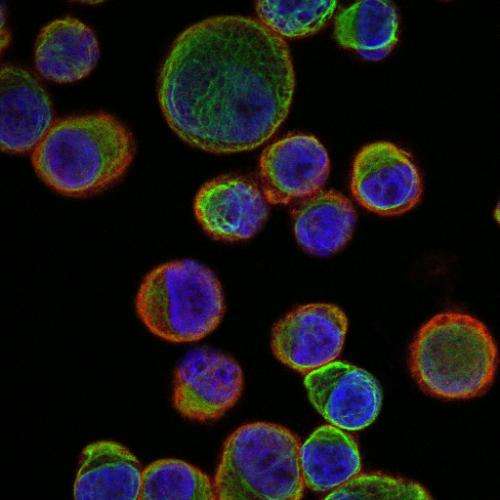Circulating tumor cells in blood can predict a patient's response to chemotherapy

Scientists from Granada have demonstrated, for the first time, that detecting circulating tumour cells (CTCs) in blood and studying the presence of certain genetic markers in them is a technique that allows specialists to predict, with great precision, the response that advanced-cancer patients will have to chemotherapy, as well as the associated secondary effects they may suffer. The key lies in identifying specific proteins in these cells, which make them particularly sensitive to specific drugs.
The scientists, from the Circulating Tumour Cells and Metastasis research group of GENYO (Centre for Genomics and Oncological Research: Pfizer/University of Granada/Andalusian Regional Govt.) have received an award at the 9th International Symposium on Minimal Residual Cancer, held recently in Paris, for their study into the use of CTCs and specific markers in these cells, as a clinical tool to determine the response to treatments administered to patients with advanced cancer of the colon.
The patients, studied in the Oncology Unit of the Clinical Hospital of Granada and the Hospital of Motril, underwent a standard treatment in this illness, which includes chemotherapy and a specific monoclonal antibody that reduces the vascularization of the tumour. The study was carried out in collaboration with the Roche Farma laboratory.
The importance of CTCs as the origin of metastasis, which, in turn, is the cause of more than 9 out of every 10 deaths from cancer, has been the subject of work by this group in GENYO for over four years, lead by the University of Granada professors, José Antonio Lorente, María José Serrano and José Luis García Puche.
GENYO co-operates actively with other Spanish hospitals such as Jaén (Dr. Sánchez Rovira's team), Córdoba (Dr. Aranda's team) or Almería - Torrecárdenas (with Dr. Juan Torres), as well as carrying out other particularly relevant collaborations with the Dexeus Institute or the Hospital del Mar in Barcelona, along with others in Granada (teams led by Drs. Expósito, Delgado, Cózar and Cueto, among others).
Eight Studies
This test on CTCs is one of eight studies the Granada research group is currently carrying out on patients affected by various particularly relevant pathologies in oncology, such as breast cancer, lung cancer, peritoneal carcinomatosis or prostate cancer. These studies have been funded by the Andalusian Regional Government's Health Council, the University of Granada and the pharmaceutical sector.
Due to the importance of this research in applying anti-cancer treatments with greater precision and with fewer side-effects, as well as the importance of CTCs in diagnosing the illness, the work of this GENYO group has caught the attention of the pharmaceutical industry, which habitually collaborates in the carrying out of some of the studies, such as SANOFI, Pangaea, Janssen, Amgen, Ingeniatrix or Roche Farma.

















